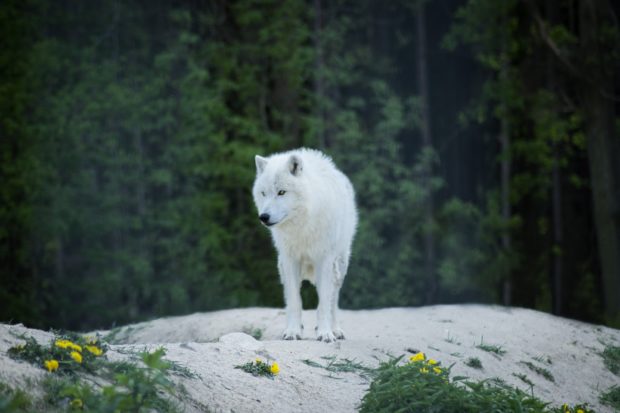You have no items in your cart. Want to get some nice things?
Go shopping
“The wolf licked me,” the boy says. “It walked slowly, nose touching the ground, then lifting up its head, looking left, right.”
“But that was four years back,” the father says. “He was just three.”
The villagers point at him as the boy who was licked, but not taken away, by the wolf.
The older kids are a little less scared of the wolves now, but the parents keep telling them cautionary tales that involve careless kids who are taken away by wolves.
It doesn’t matter whether they eat them or raise them. When a wolf comes near a lonely little kid, it’s already a scary tale.
The boy grabs my hand and leads me to the back of their hut. He isn’t tall enough for his age, but I sense the wild strength contained in his impatient hand. His thick hair is overgrown and a few strands fall over his forehead, some reaching down all the way to his button nose. It’s hard to fight back a smile as I think of watching Mowgli on TV last week.
“See, it happened here! But none of them saw it. Only I saw, its mouth wide open, teeth sharp. Then it smiled and licked my forehead.”
His eyes glisten, though he isn’t smiling. He wasn’t old enough when that happened, to realise that he was within a story. He is here to tell the story now, to a stranger who just needed a water refill, and some shade, and perhaps some rest in human company for a few minutes.
The jungle is too close, and it spreads around in thick foliage, nonstop bird songs, and occasional animal calls. The tall trees hide beneath them the lake and hills that aren’t too far away. It’s a challenge for me and my team to be here for a fortnight, hiking each day from the forest department’s bungalow, always accompanied by guards and guides, but for the villagers, the everyday existence must mean eternal lessons of peaceful coexistence with all sorts of animals and climatic conditions. They seem to know the right proportions of friendliness and distance as well.
But this boy! He will need many more years to come out of his own fairy tales in which wolves smile at him.
He’s fascinated by my camera, but doesn’t attempt to touch it like the other kids, when it hangs from my neck, unused. I had taken a conscious decision to not take too many photos of people, as my photo feature centers only on wildlife.
But I click twice when we are alone.
Him looking up at me. Pointing to the woods.
I show him the results on the screen. He smiles at last, happy to be a hero trapped in pixels. I imagine how good his pearly white teeth might look in a portrait, but decide against one more photo. He’s obviously under a spell, and is desperate to convey the magical moment from his childhood, in the hope that someone might understand him, someday.
I wonder what a wolf’s smile is like, but stay silent and smile encouragingly at him.
“It smelled like meat stew. The saliva was cold,” he says.
About Jose Varghese
Jose Varghese is a bilingual writer and translator from India. He is the author of ‘Silver Painted Gandhi and Other Poems’ and his short story manuscript ‘In/Sane’ was a finalist in the 2018 Beverly International Prize. He was a finalist in the London Independent Story Prize (LISP), a runner up in the Salt Prize, and was commended in the Gregory O'Donoghue International Poetry Prize. His works have appeared or are forthcoming in Joao Roque Literary Journal, Haunted Waters Press, Wingless Dreamer, Bluing the Blade (Tempered Runes Press), Lunchbreak Zine, Cathexis Northwest Press, The Best Asian Short Story Anthology (2019 and 2021) , Dreich, Live Encounters, Meridian – The APWT Drunken Boat Anthology of New Writing, I Am Not a Silent Poet, Spilling Cocoa Over Martin Amis, Kavya Bharati, Bengaluru Review, Muse India, Re-Markings, Unthology 5, Unveiled, Reflex Fiction, Flash Fiction Magazine, Chandrabhaga, and Postcolonial Text.
- Web |
- More Posts(1)




